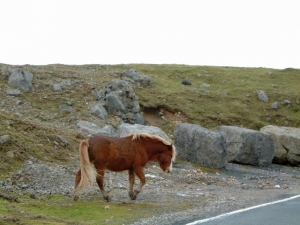City-dwellers in Boston tend not to be overly-concerned with the possibility of encountering a farm animal on the morning commute. However, travel a few miles outside of Boston, and you may find the possibility far likelier.

Massachusetts is home to some 7,700 farms, each about 67 acres, according to the U.S. Department of Agriculture Economic Research Service, with dairy products ranking third among the state’s top agriculture commodities. There are also dozens of acclaimed horse farms throughout the state. If any of these animals escape their enclosure and cause a road hazard that results in a collision, the owner of that animal can be held liable.
Our Boston car accident lawyers are familiar with Mass. General Law Ch. 49, Section 29, which holds that a person injured by any horse, mule, donkey, cattle, sheep, goat or pig – including in a car accident – may seek to recover damages from the owner of the animal.
In the recent wrongful death lawsuit of Estate of Sholberg v. Truman, before the Michigan Supreme Court, there was little dispute the estate of a deceased woman was entitled to damages from the owner of the stray horse that had caused a fatal crash. The greater issue was whether the title owner of the property could also be held liable for damages.
According to court records, the driver of a vehicle was killed instantly when she struck a horse standing in the road. A personal representative for her estate filed action against the owner of the horse, as well as the title owners of the property, which happened to be the brother and sister-in-law of the horse owners.
The court entered a summary judgment in favor of the plaintiff with regard to the liability of the horse owner. It was well-established through documentation of at least 30 prior instances of animal elopement from his property that the horses had become a public nuisance and a hazard on the road surrounding his property.
However, with regard to the title owners of the property, the trial court granted summary judgment in favor of the defendants, citing the fact that the owners had no significant control over the property or the animals, and in fact hadn’t been to the farm in more than a decade. The court determined ownership alone is not dispositive when it comes to establishing liability.
This is not to say that the owner of a property could never be held liable for negligence stemming from use of that property. The key is establishing what knowledge the owners had of the issue, and further what degree of control they exercised with regard to the property.
In the Sholberg case, the state supreme court ultimately affirmed the trial court’s ruling, though one dissenting justice indicated he disagreed with the grant of a summary judgment on the issue of control over the land. He opined that rather than be considered a matter of law, such a determination should be made by a jury.
It’s entirely possible that differing jurisdictions might reach alternate conclusions on this issue, so it’s important to discuss these factors with an experienced lawyer.
If you are injured in a car accident in Massachusetts, call Jeffrey Glassman Injury Lawyers for a free and confidential appointment — (617) 777-7777.
Additional Resources:
Estate of Sholberg v. Truman, June 10, 2014, Michigan Supreme Court
More Blog Entries:
Lockwood v. Geico – Bad Faith Claims & Auto Insurance, May 28, 2014, Boston Car Accident Lawyer Blog
 Boston Car Accident Lawyer Blog
Boston Car Accident Lawyer Blog

